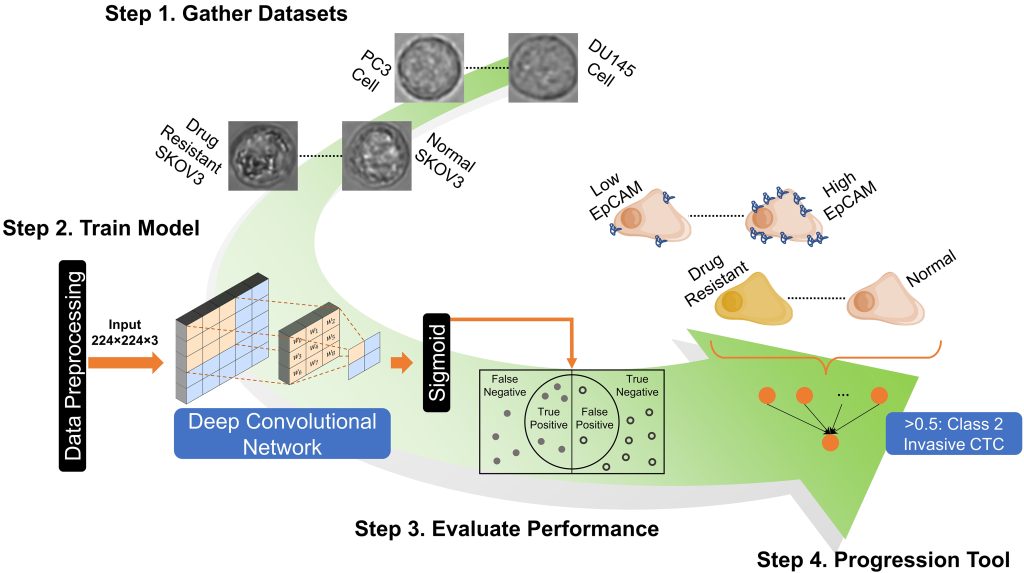From the Journal: APL Machine Learning
WASHINGTON, May 2, 2023 – Cancer cells that initiate metastasis, or the spread of the disease from its primary location, are different from cancer cells that stay in the original tumor. Distinguishing metastasis-initiating cell types can determine the severity of cancer and help medical practitioners decide on a course of treatment.
In APL Machine Learning, by AIP Publishing, researchers from Texas Tech University developed a deep learning model to classify cancer cells by type. The tool requires only a simple microscope and a small amount of computing power, producing results on par or better than more sophisticated and complex techniques.
“Cancer cells are highly heterogeneous, and recent studies suggest that specific cell subpopulations, rather than the whole, are responsible for cancer metastasis,” said author Wei Li. “Identifying subpopulations of cancer cells is a critical step to determine the severity of the disease.”

Current methods to categorize cancer cells involve advanced instruments, time-consuming biological techniques, or chemical labels.
“The problem with these complicated and lengthier techniques is that they require resources and effort that could be spent exploring different areas of cancer prevention and recovery,” said author Karl Gardner.
Some studies use magnetic nanoparticles to track cancer cells, but attaching these labels could affect the downstream analysis of the cells and integrity of the measurements.
“Our classification procedure does not consist of additional chemicals or biological solutions when taking pictures of the cells,” said Gardner. “It is a ‘label-free’ identification method of metastatic potential.”
The team’s neural network is also simple to use, efficient, and automated. After feeding it an image, the tool converts the data to a probability. A result lower than 0.5 categorizes the cancer as one cell type, while a number higher than 0.5 designates another.
The tool was trained to optimize the accuracy of predictions with a set of images of two cancer cells lines. It reached over 94% accuracy across the data sets used in the study.
Currently, the training data only accounts for single cancer cells. However, research shows that circulating tumor cell clusters are more responsible for the spread of cancer. The authors aim to extend and generalize the model to include both single cells and clusters.
###
Article Title
Label-free identification of different cancer cells using deep learning-based image analysis
Authors
Karl Gardner, Rutwik Joshi, Md Nayeem Hasan Kashem, Thanh Quang Pham, Qiugang Lu, and Wei Li
Author Affiliations
Texas Tech University
